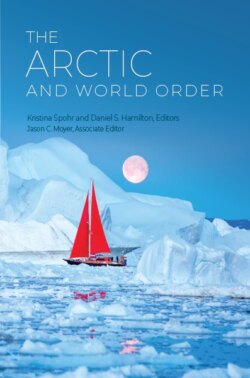Читать книгу The Arctic and World Order - Группа авторов - Страница 5
На сайте Литреса книга снята с продажи.
Foreword
ОглавлениеFor centuries, the Arctic—remote, inaccessible, often-bitterly cold—was peripheral to world order. Today it is at the forefront of leading global trends. It is the epicenter of the world’s climate emergency. It is becoming the front line between geo-economic struggles and environmental degradation. The Arctic “regime” has pioneered innovative means of governance among often-contentious state and non-state actors. Instead of being the “last white dot on the map,” the Arctic is now our first frontier.
In this book, scholars and practitioners—from Anchorage to Moscow, from Nuuk to Hong Kong—explore the huge political, legal, social, economic, geostrategic and environmental challenges confronting the Arctic in the face of global warming and a shifting world order, and what this may mean as we look to 2040. They exchanged their findings, offered comments and experiences, and shared national perspectives at an authors’ workshop we hosted virtually (due to the COVID-19 pandemic) at Johns Hopkins SAIS on May 6–7, 2020.
This project has been conducted under the aegis of the Foreign Policy Institute (FPI) and the Henry A. Kissinger Center for Global Affairs (HKC) of Johns Hopkins University’s School of Advanced International Studies (SAIS), and specifically our program on “The United States, Europe and World Order.” We are particularly grateful to the German Academic Exchange Service (DAAD) and the German Federal Foreign Office (AA) for the generous funding of our program and of this project; and to our SAIS colleagues Francis Gavin and Christopher Crosbie (HKC Director and Associate Director respectively), and Carla Freeman (FPI Director) for their support.
Last but not least, we express gratitude to cover designer Margaret Irvine and to Peter Lindeman for converting the manuscript so professionally into this volume; while special thanks are due to our Associate Editor, Jason Moyer, who has worked tirelessly with us to make our workshop and this book project a success.
The views and opinions expressed are those of the authors, and do not necessarily reflect those of any institution or government.
Kristina Spohr
Daniel S. Hamilton
November 2020
